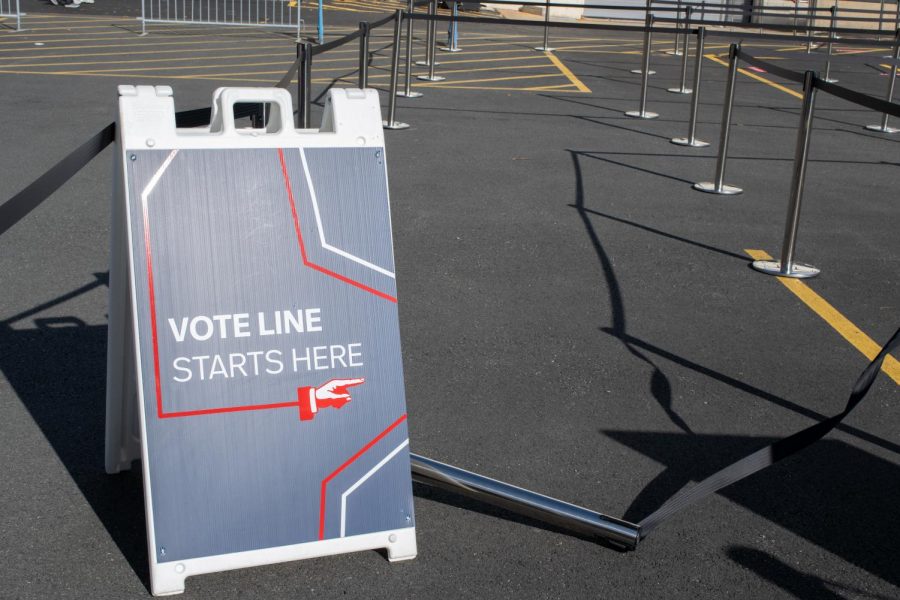Northeastern students, staff held post-election discussion groups
Northeastern students were able to vote at Matthews Arena on Election Day.
November 10, 2020
In the days after the election, the country held its breath as votes were counted. With the anticipation comes stress, and several Northeastern organizations held post-election discussions to debrief about the potential results and provide a space to process the election.
Northeastern University Political Review, a student-run political magazine that aims to promote awareness of political issues in the campus community, held an open space for discussion over Zoom instead of their usual weekly meeting. Milton Posner, editor-in-chief of the Northeastern University Political Review expected to cover topics, such as LGBTQ+ rights and the significance of this presidential election.
“This year has been mentally unhealthy for a lot of people and we hope that by leaving it open-ended and flexible, people will have a place to discuss their thoughts and feelings,” said Posner, a fourth-year journalism and political science major.
Several other Northeastern organizations came together to facilitate a discussion space for students and staff. Two post-election dialogue circles, which were sponsored by several organizations on campus, including the Center for Spirituality, Dialogue and Service and the Office of City and Community Engagement, or OCCE, took place Nov. 4.
In the two sessions that they held, they separated staff and students into small groups and asked two main questions: how are you feeling post-election, and what are you going to do next?
“It felt like a space where you could just process,” said Hilary Sullivan, director of Community Service and Civic Engagement at the OCCE. “I tried to really engage and just holding a space [for dialogue] is so important, regardless of whether people were happy or sad.”
Sullivan felt that the discussions they had were useful for both students and staff. In this election cycle, Northeastern attempted to provide resources for student education on civic engagement and convince them to vote.
“I really think that universities have that obligation on educating how students become active citizens and active duty,” Sullivan said. “Northeastern is a community and being a part of a community means that there is space. Leaving space for people to process emotions and things that are happening are really important.”
Sunrise Northeastern also planned a post-election discussion space. Instead of their usual meeting, they decided to hold a space to talk about the election. However, it turned out very different than they had expected.
“It was originally planned as we were going to talk about the election, but I think we’re all kind of burned out on talking about the election,” said Sophia Samaha, the co-lead of Sunrise’s justice, equity, diversity and inclusion team, or JEDI, and third-year environmental science major. “It was actually for the best.”
The discussion began with the question, “What have you been doing to distract yourself?”
Similar to other groups, the space was created to share feelings and allow people to understand and process these emotions. For the Sunrise Northeastern team, the most important part of hosting this discussion space was for people to know they had a community they could rely on and focus on how people were coping with the election.
“I think it was a good conversation because I can’t remember how we got from one conversation to the next,” Samaha said.
Before the results of the election were released, Sunrise Northeastern prepared for their next steps. They plan to form an environmental coalition with other Northeastern organizations, faculty and staff to create a Green NEU Deal that they hope Northeastern will adopt.
“We’re determined to let people know that a Biden win is not the end point and that we’re going to keep fighting,” Samaha said.
The OCCE is also planning to get involved in future elections and find ways to further engage students politically. Their programs are pushing for ways in which Northeastern as an institution can be involved in strategic democratic engagement.
“It doesn’t stop here after the election is decided,” Sullivan said. “There are local issues to get involved in and other ways to contribute to the community.”







